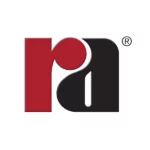Share:
More Articles

Trade Shows
Come talk to a Rolled Alloys representative in person about your project. You can find us at these trade shows.

Quote, Buy, Track!
We make it easy to get instant pricing and purchase your metal at the click of a button. Track your order progress, get notified when it ships, and follow your shipment online until it’s delivered. It’s that easy!
During World War II, because of severe nickel shortages, the stainless steel industry started using manganese as a substitute for nickel.
However, manganese is only half as effective as nickel in forming austenite. Therefore, for every 1% decrease in nickel content, approximately 2% of manganese had to be added as a substitute. Another reason to look for a substitution is fluctuation in the price of nickel. As manganese is cheaper than nickel, there was a significant move in the appliance and food equipment industries to switch as a cost-saving measure.
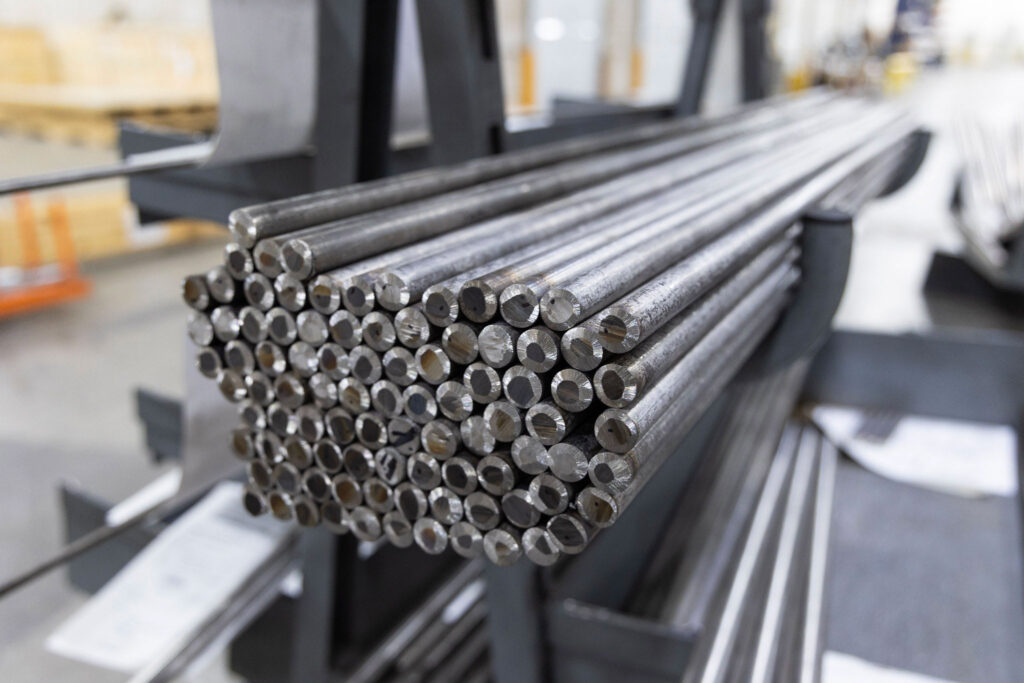
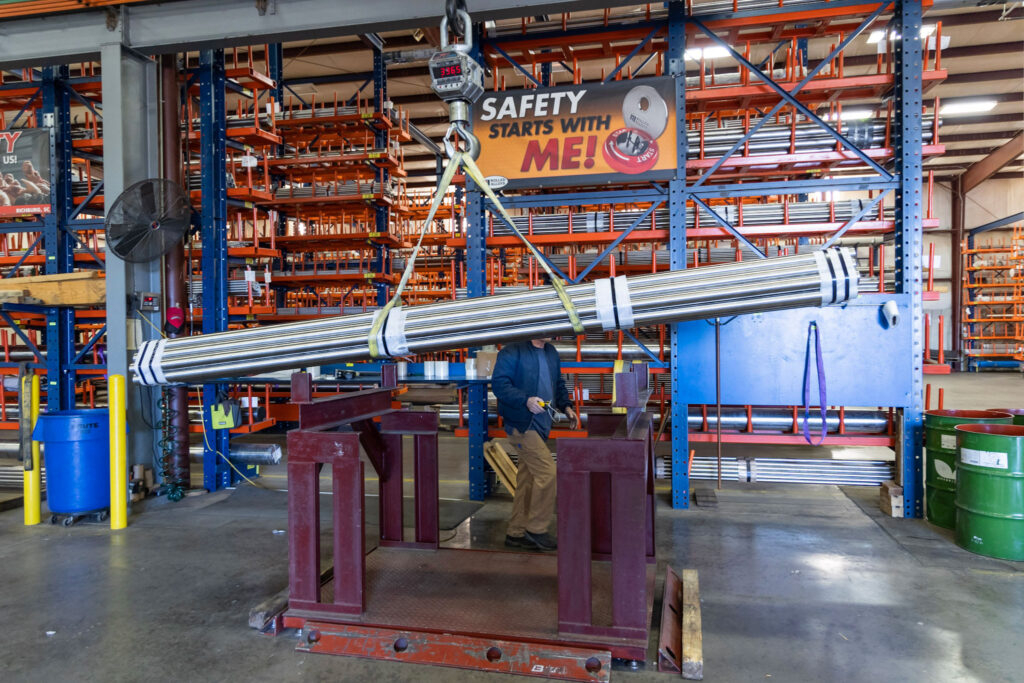
Due to its high consumption,18-8 stainless steels were the first to be targeted for nickel substitution, resulting in the creation of 201 stainless steel. 301 stainless steel is made up of 16% chromium and 6% nickel, while 201 contains 16% chromium, 3.5% nickel, and 5.5% manganese [(5.5 Mn) * (0.5) + (3.5 Ni) = (6.25 Ni)]. Both alloys have similar corrosion resistance and mechanical properties, as well as comparable forming and fabrication characteristics.
Shortly after, the Nitronic® series of alloys was developed by Armco Steel, which is based on the concept of using higher manganese content, which in turn absorbs more nitrogen. Nitrogen can act as a strengthener and can also enhance pitting resistance. This discovery allowed the development of alloys with high strengths and improved corrosion resistance without requiring costly alloying additions. Nitronic 50 (UNS S20910, XM-19) is one of the most widely used alloys in this series. It has a nominal composition of 22% chromium, 13% nickel, and 5% manganese, which gives it comparable corrosion resistance and strength to duplex alloy 2205. Even after severe cold work, Nitronic 50 will remain non-magnetic making it useful in both the annealed and strain-hardened conditions. Another widely used alloy from this series is Nitronic 60 (S21800).
Having a nominal composition of 17% chromium, 8.5% nickel, 8% manganese, and 4% silicon, Nitronic 60 is best known for its resistance to galling making it an alloy utilized routinely for wear and fastener applications requiring moderate corrosion resistance. Although the Nitronic tradename now belongs to Cleveland-Cliffs Inc., these alloys are in the public domain.
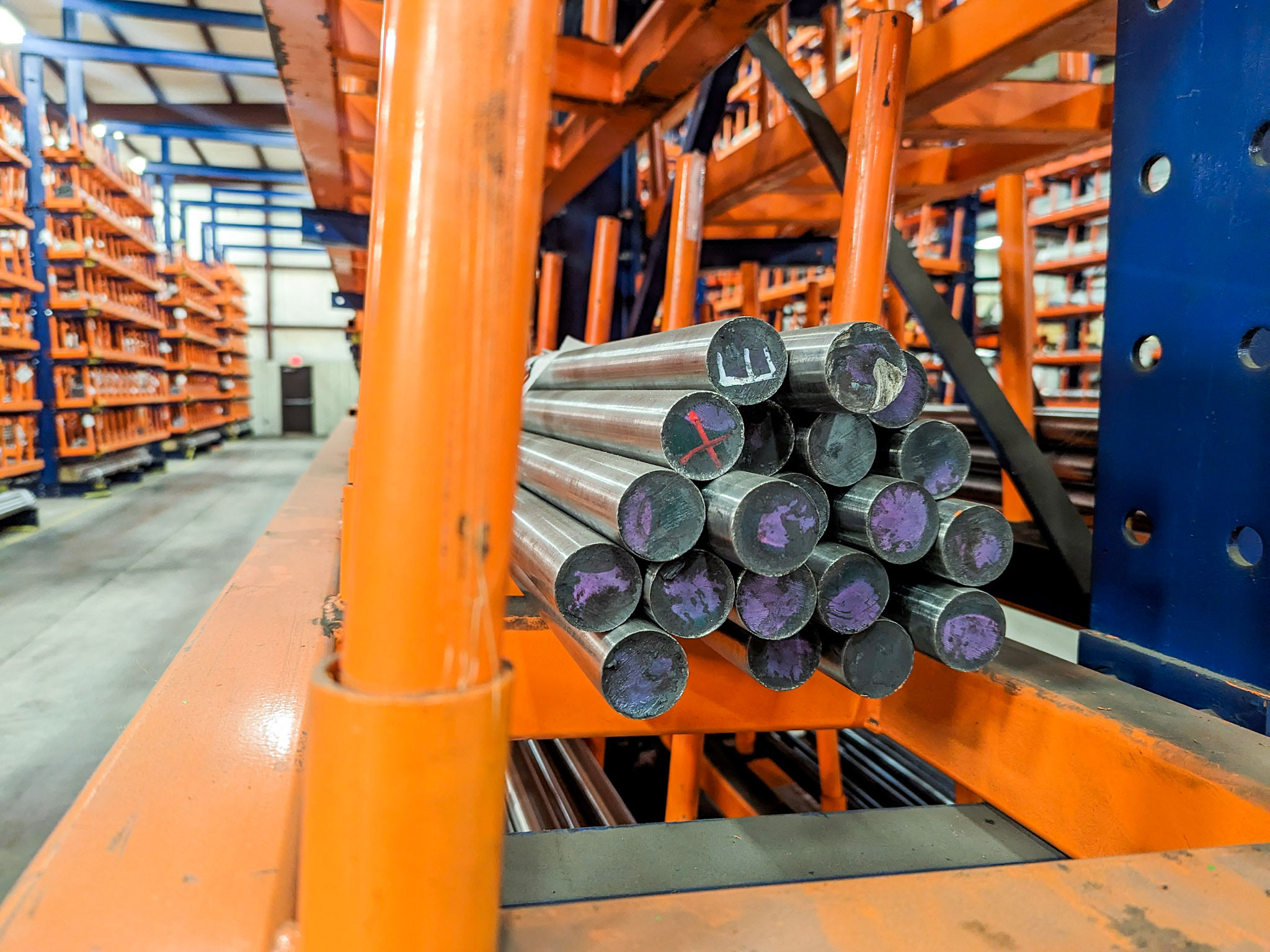
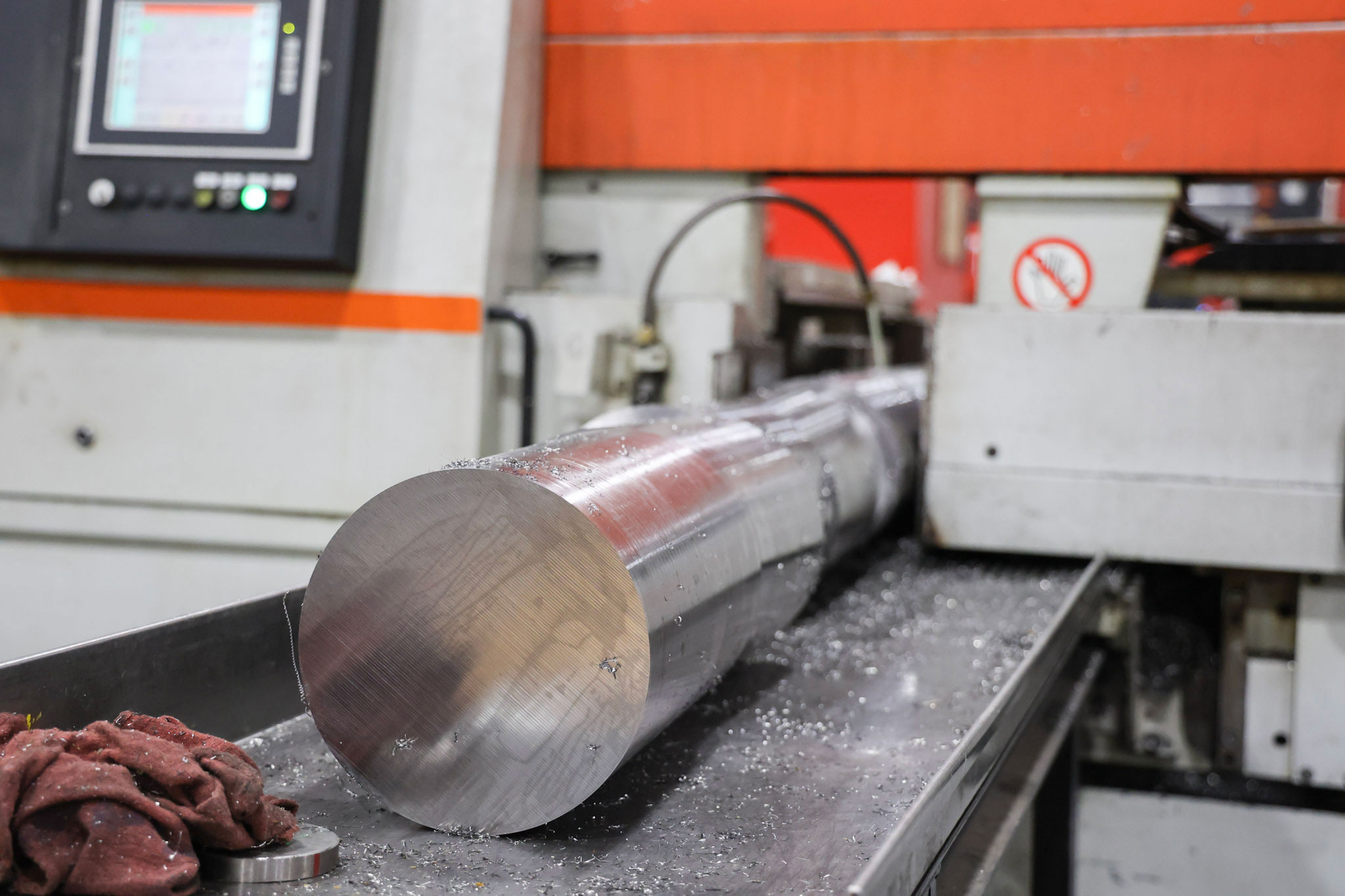
Other manganese substitution or high manganese grades exist, including Carpenter’s Gall-Tough® alloy (S20161) and 15-15LC® Modified (S21300). Additionally, Outokumpu invented a lean duplex alloy that also reduces nickel content through manganese substitution. LDX2101® (S32101) contains only 1.5% nickel, 21% chromium and 5% manganese. The corrosion resistance of LDX2101 is comparable to that of 304 stainless, which has five times the nickel content. With the duplex microstructure, LDX2101 also resists chloride stress corrosion cracking.
Buy Online Anytime
Our dashboard makes it even easier to shop online anytime from anywhere. Quote, buy, and track 24 hours a day.
E-Services Stocking Programs
Our e-service stocking programs put you in the driver seat by using our customized purchasing options to order your recurring material with ease. Whether you have an internal process for purchasing and receiving in place or maybe looking for solutions to become more efficient, we have a program that will work for you.

Trade Shows
Come talk to a Rolled Alloys representative in person about your project. You can find us at these trade shows.

March Mania 2025
Every Online Order in March is a Chance to Win One of 8 Great Prizes!
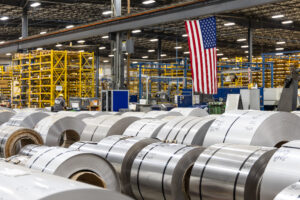
Instant Pricing on Nickel, Stainless Steel, Duplex, and Titanium
Get real-time pricing and availability for nickel, stainless steel, duplex, and titanium—all in one place.
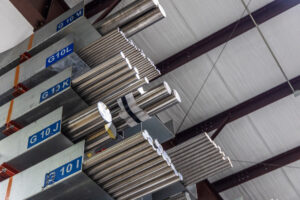
New and Expanded Stock for 2025
New Titanium, Stainless, Nickel and Cobalt in Stock Now – CP Ti Grade 2, 635, 718 and More!
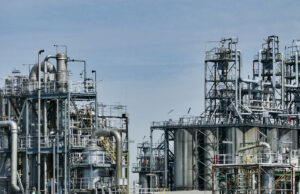
History and Uses of Alloy 800
Discover the evolution of Alloy 800, from its origins during the 1950s to modern derivatives like Alloy 800H/800HT. Learn about its high-temperature strength, petrochemical applications, and commercial availability today.
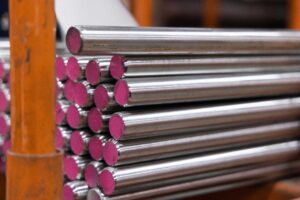
New Bar Stock Available
New Round and Flat Bar Products in Stock at Rolled Alloys



